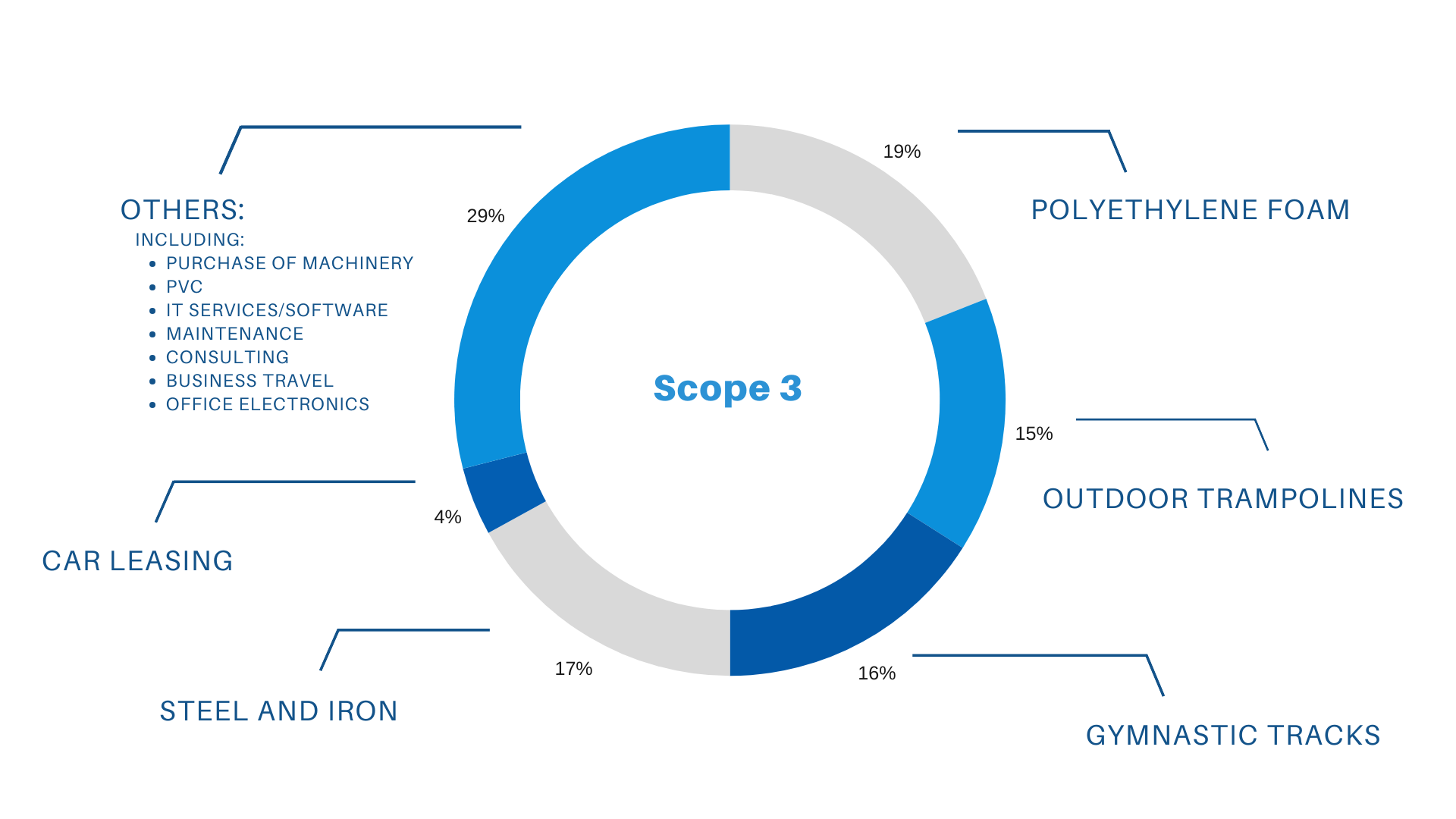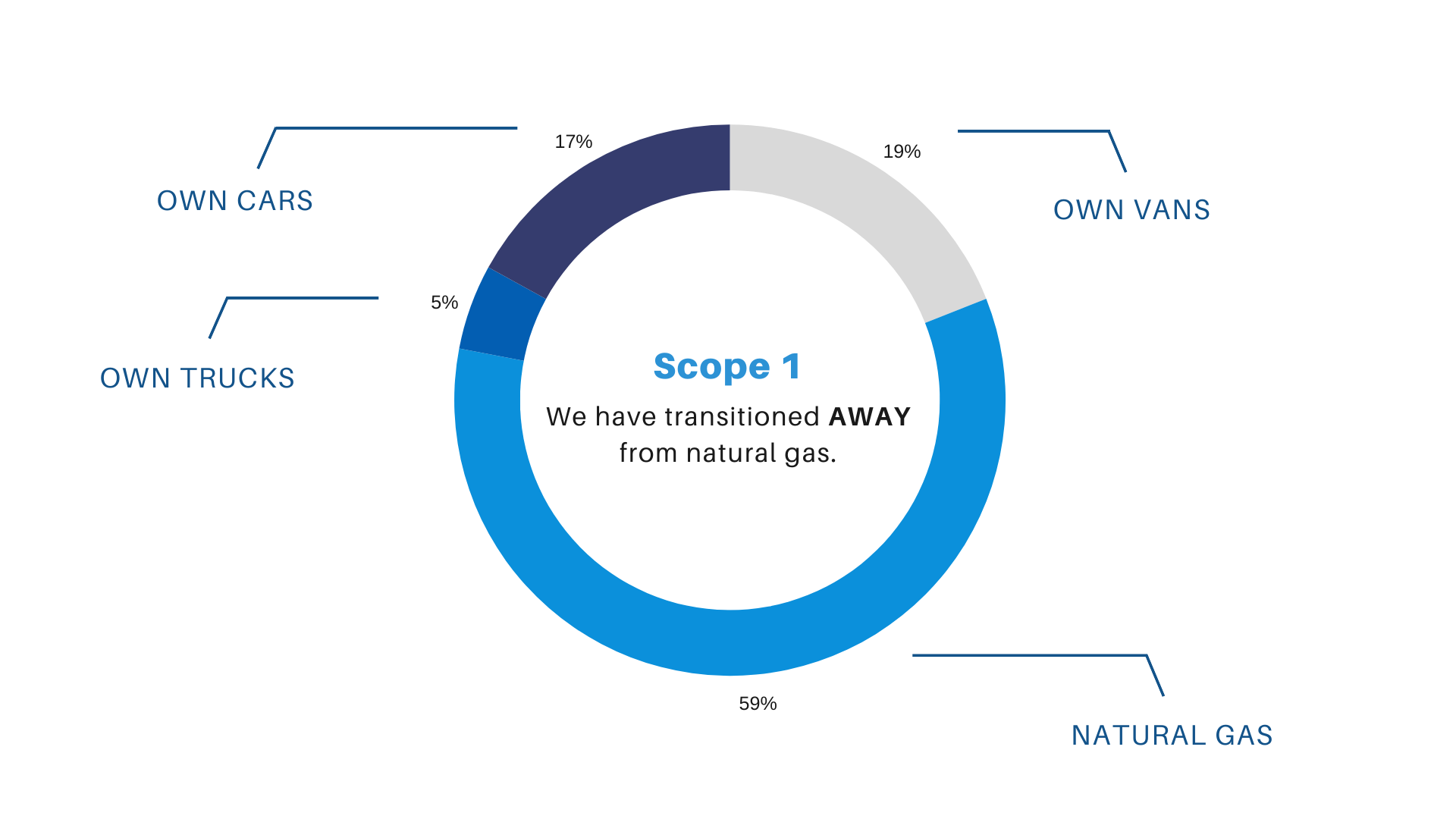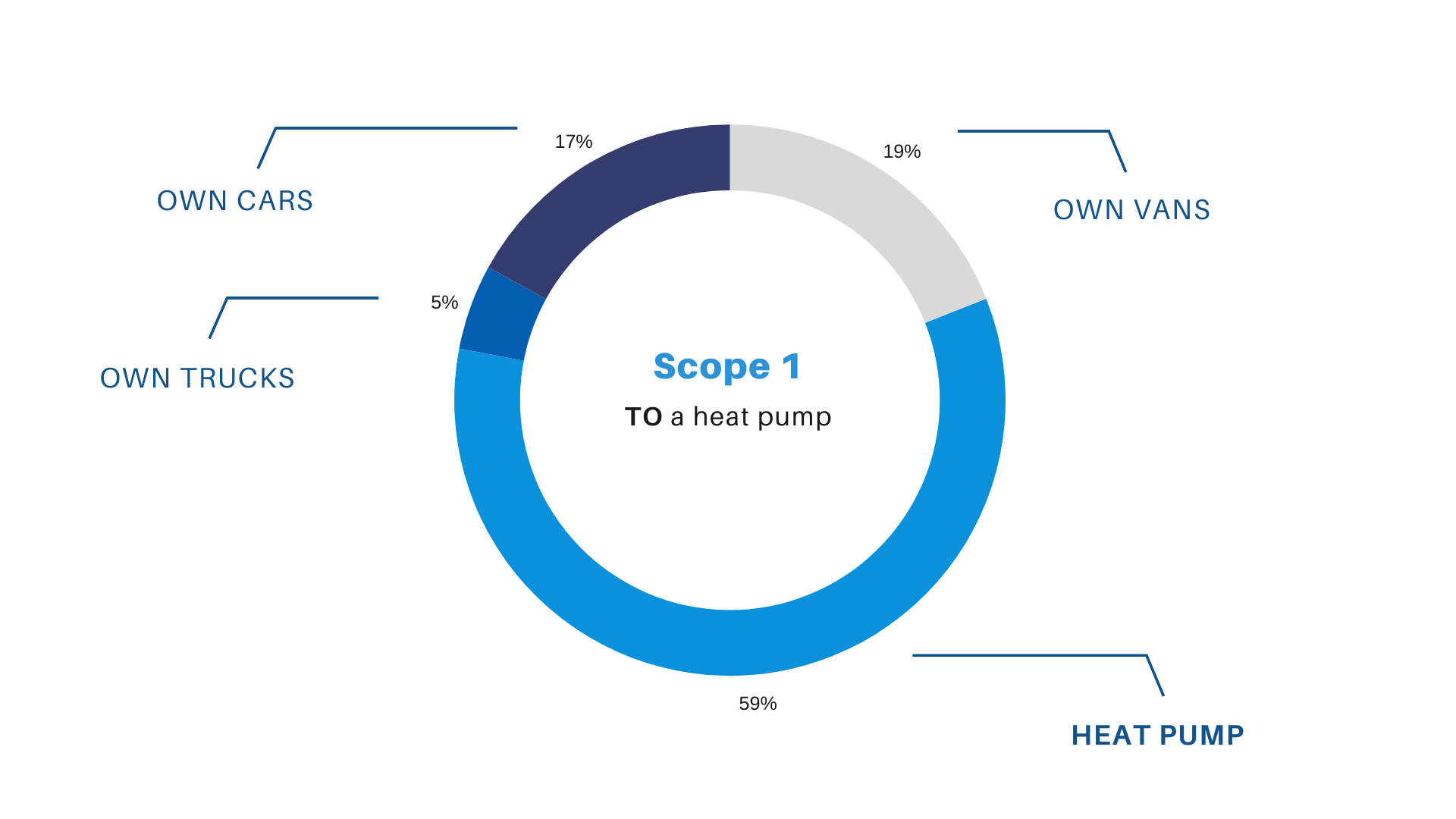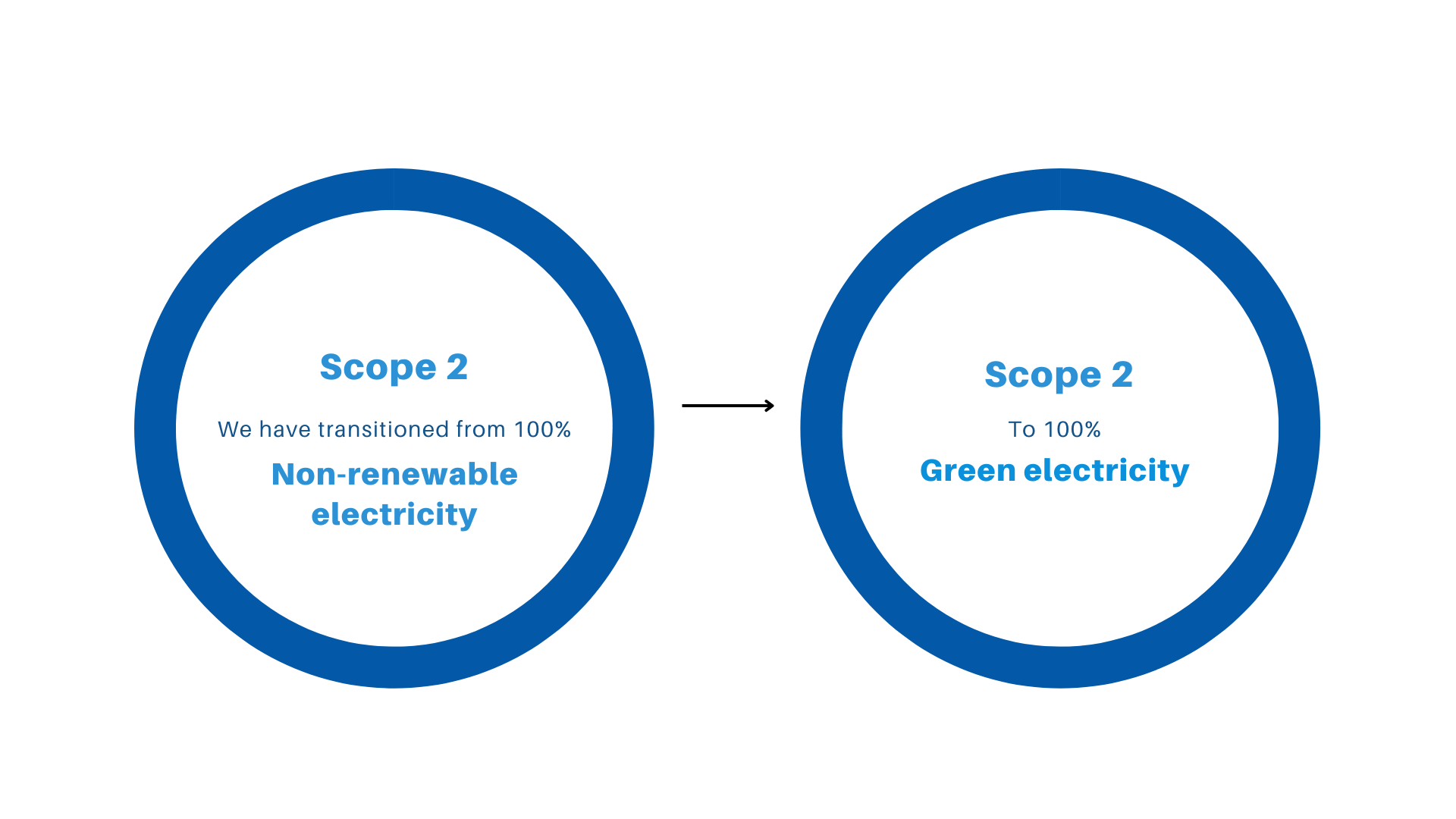We know our carbon footprint and take action

At PE-Redskaber A/S, we are proud to have participated in Danish Industry's (DI) Klimaklar SMV project, supported by, among others Industriens Fond. As one of the first 50 of 8,500 companies in Denmark, we have gained an in-depth understanding of our carbon footprint. This knowledge enables us to take concrete steps towards reducing our emissions.
The basis of the project
The project is based on the Greenhouse Gas Protocol (GHG Protocol), which is the leading international standard for quantifying and reporting CO2 emissions. GHG, established by WRI and WBCSD in the late 1990s, is a global standard tool for measuring and reporting carbon emissions from private and public sectors, value chains and climate action.
GHG divides CO2 emissions into three scopes
- Scope 1: Direct emissions from our own processes, including combustion of fuels for manufacturing and processing and transport of materials and products in our own transport fleet.
- Scope 2: Indirect emissions from supplied energy, which includes the production of electricity, district heating and cooling that we purchase and consume from the supplied energy grid. A location-based method is used to calculate CO2 emissions from electricity consumption, using Energinet's Environmental Declaration.
- Scope 3: Other indirect emissions from our value chain, both upstream and downstream. This includes emissions associated with the extraction and processing of raw materials and other products and services that we purchase and consume.
What are our calculations based on?
The measurement of our carbon footprint is based on the Danish Business Authority's carbon calculation tool, which uses the Climate Compass.
Emission factors
We use emission factors from Energinet, while our purchasing is based on data from Exiobase. These sources ensure that our calculations are accurate and up-to-date.
Sensitivity analysis
We have performed a sensitivity analysis for certain product groups using Exiobase and Ecoinvent. This gives us a better understanding of how different factors affect our overall carbon footprint.
Reduction targets
Our reduction targets are set in accordance with the Science-Based Targets initiative (SBTi) and specific guidance for small and medium-sized enterprises (SMEs). SBTi requires SMEs to reduce their Scope 1 and 2 emissions by 50% by 2030 compared to 2018. At PE-Redskaber A/S, we will already fulfil these goals and more in 2024 by reducing Scope 1 by approximately 55% and converting Scope 2 by 100% to green certificates (green power).
The project has been divided into three phases:
- Concept development phase: We started by determining how we could establish our carbon footprint and develop actionable reduction plans. This gave us a clear overview of our current carbon footprint and helped us identify possible actions to reduce it.
- Individual counselling: In this phase, we took concrete steps towards achieving our climate goals. We received customised advice that helped us implement effective measures. This allowed us to take the necessary steps to achieve our goals.
- Knowledge sharing: The final phase focused on sharing experiences and knowledge from the project. We participated in case studies, webinars, roadshows and a final conference where we shared our experiences and learned from others.
Science-Based Target Initiative
Reduction requirements:
According to SBTi's reduction pathway for SMEs, our company can define reduction targets for Scope 1 and 2 emissions below the 1.5°C target. This requires a 50% absolute reduction in 2030 compared to 2018. As mentioned earlier, we will already reach this goal in 2024.
Monitoring and Reduction:
Scope 3 reduction (absolute or relative) is a prerequisite for SBTi. We focus on lowering emissions from our own means of transport, for example, by converting to electric cars whenever possible, which uses the emission factor for electricity relatively heavily towards 2030.
 Projection:
Projection:
Under a BAU scenario, proactive reduction measures for Scope 1 and 2 are necessary (initiated in 2023). We are actively working on these initiatives to ensure we reach our ambitious goals.
We are proud of our participation in Klimaklar SMV and look forward to continuing our work with sustainability. With a clear path and a stronger foundation, we are ready to further reduce our CO2 emissions.
If you want to know more about PE-Redskaber's work with sustainability, you can contact CEO Ole Gustafsson at obg@pe-redskaber.dk or call +45 73 84 51 51 01.











